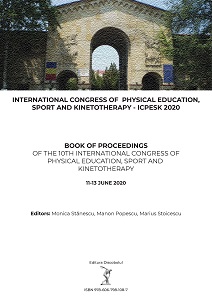
We kindly inform you that, as long as the subject affiliation of our 300.000+ articles is in progress, you might get unsufficient or no results on your third level or second level search. In this case, please broaden your search criteria.

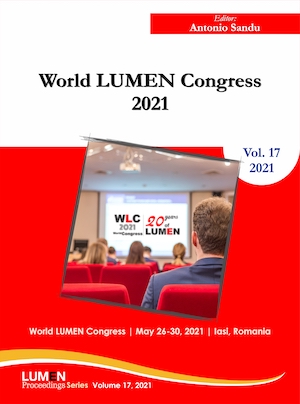
The paper explores the interface between the new theoretical approach of ecolinguistics and language educational practices in the new digital environments that we have plunged into during 2020-2021. From the standpoint of ecological communication and eco-semiotics, the exploration highlights its impact on language learning and education in general, as re-contextualized in the new digital spaces we have all been experiencing as educators and learners. The theoretical input from semiotics and conceptual linguistics on the one hand, and educational ecology on the other hand, is paired with a direct empirical analysis of the students’ language learning experience at the USAMVBT University of Timisoara, Romania, the University of Tetova, North Macedonia, and Lomza State University from Poland. Our aim is to better understand how to sustain students’ communicational skills and their overall adaptation to the emerging digitalised educational environment across fields of study.
More...
We investigate in this work the relationship between the perceived demands of the teaching profession and the general sense of teachers’ self-efficacy in on-site and online teaching contexts. We present the results of a study with N= 127 Romanian teachers, with ages ranged from 19 to 55, with a mean age of 39,26 years, SD = 9,20 (123 females, 4 males; 73 from urban area, 54 from rural area). Our results show that the self-efficacy of teachers is lower in online professional activities, compared to the self-efficacy of teachers perceived in the on-site professional activities. In the case of the online teaching environment the teachers with high scores on teachers’ self-efficacy tends to consider as being more challenging when dealing with different levels of children's development, working with children with learning disabilities, who have a small number of attendances, who do not follow the received instructions and with children who need more time and energy compared to other children. We discuss implications of our results for policies and strategies to enhance the quality of teaching practices.
More...
The online learning environment has challenged the educational relationships over the last years. The medical safety has hidden us behind some monitors, devices or platforms that allowed us to continue our studies and our professional activities. From faces with or without associated names, we turned into names that accompany empty icons on the wall. Most often, we had to keep our cameras off. When we turned them on and shared our faces with the audience, we offered and received feedback much easier. The feedback has an important role in any human communication. More than that, in the educational field, the feedback contributes to the adjustments of the teaching – learning – evaluating process. On the positive side, the teacher gives feedback in order to reinforce the appropriate learning behaviour of the student and the student offers feedback to ensure the proper adjustment of the teaching behaviour. The pattern of giving and receiving feedback is simple and visible in all face-to-face communication that develops an educational activity. What happens in the online mediated education? What happens when faces see no faces?Our study investigates the feedback from the perspective of the online mediated educational relationships. Thus, we analyzed the responses of the students to some seminar tasks regarding the use of educational platforms and the role of feedback in the learning process. The target population consisted in 135 students enrolled in the certification program for teaching career. Our findings show that feedback as reinforcement communicative behaviour upgrades the politeness strategy and feedback as a pedagogical principle helps to replace the missing face-to-face interaction in online mediated learning.
More...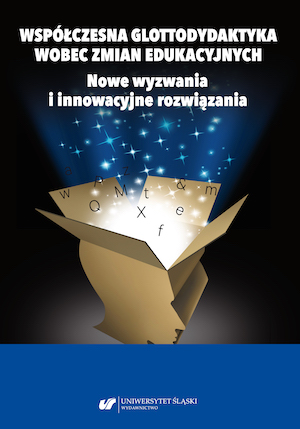
In March 2020, lecturers turned into e-lecturers and students became e-students overnight. This situation posed multiple challenges at every stage of the didactic process. This article has an aim of assessing the extent to which learners of foreign languages at the University of Economics (UEK) in Krakow (Poland) succeeded at meeting their course objectives, after moving teaching entirely on-line. A questionnaire was provided to lecturers and second-year undergraduate students who taught and studied foreign languages at UEK in the traditional classroom setting, prior to the introduction of on-line learning. The questionnaire collected data on teaching effectiveness, student involvement, creativity, motivation, evaluation of students’ work, participation in class, class preparation time (lecturers) / preparation time for class (students) and class attractiveness. The analysis of the respondents’ answers allowed us to conclude that although the lecturers’ adoption of virtual teaching environment was successful, on-line study did not constitute an optimal way of carrying out foreign language courses at the university. However, since March 2020, lecturers have invested a lot of resources into improving and implementing digital tools, and these tools are likely to enrich traditional methods once classroom-based teaching restarts.
More...
This paper presents a quasi-experiment based on experience of implementing a blended learning approach to the EFL course. The main purpose of this research is to examine computer mediated instruction in the form of two various educational platforms and their influence on the loss of communicative competence components of English as a foreign language learners. Two e-learning platforms supporting a traditional foreign language course are analysed in detail. As a result of the study, a synergy between the type of e-learning platform and forgetting of communicative competence components was noticed. The students who used blended learning in EFL learning had a higher level of communicative competence and they forgot less grammar than those who did not use this form of learning. The use of blended learning method turned out to be an interesting way to individualize the process of EFL learning.
More...
This article aims at presenting the methodology and outline of the international language workshop organized for students of Swedish at the Institute of Linguistics of Warsaw University and Vuxenutbildning Skövde in Sweden as a positive example of the usage of Internet tools for effective learning within foreign language communication in the time of corona virus pandemic. The authors of the article present the specificity of the language teaching programme for Swedish as a part of the studies offered in the field of Applied Linguistics at the Faculty of Applied Linguistics at the University of Warsaw and the language teaching programme at the Snabba spåret course offered by Vuxenutbildning in Skövde, pointing to their differences and similarities, and then discuss the details of preparation and implementation of the concept of the international communication workshop along with the results of surveys conducted before and after the project.
More...
Changes in the contemporary educational landscape that result both from the requirements of the labour market and the possibilities of accessing knowledge through information and communication technologies make participation in MOOC courses increasingly popular. MOOCs offer numerous advantages. Being held only in virtual space, they are available without time or place restrictions. Most of them are free of charge. Moreover, they are related to many different scientific disciplines, and their authors represent recognized scientific circles. If prepared properly, MOOCs can become an effective tool for developing professional and key competencies of their participants. The aim of this article is to present the extent to which MOOCs can support two parties that are engaged in the didactic process – foreign language learners and their teachers. In order to introduce the concept of MOOC courses, the article also includes a brief description of the main theories underlying e-learning as well as the development of MOOCs, their classifications and selected course proposals in the field of language teaching.
More...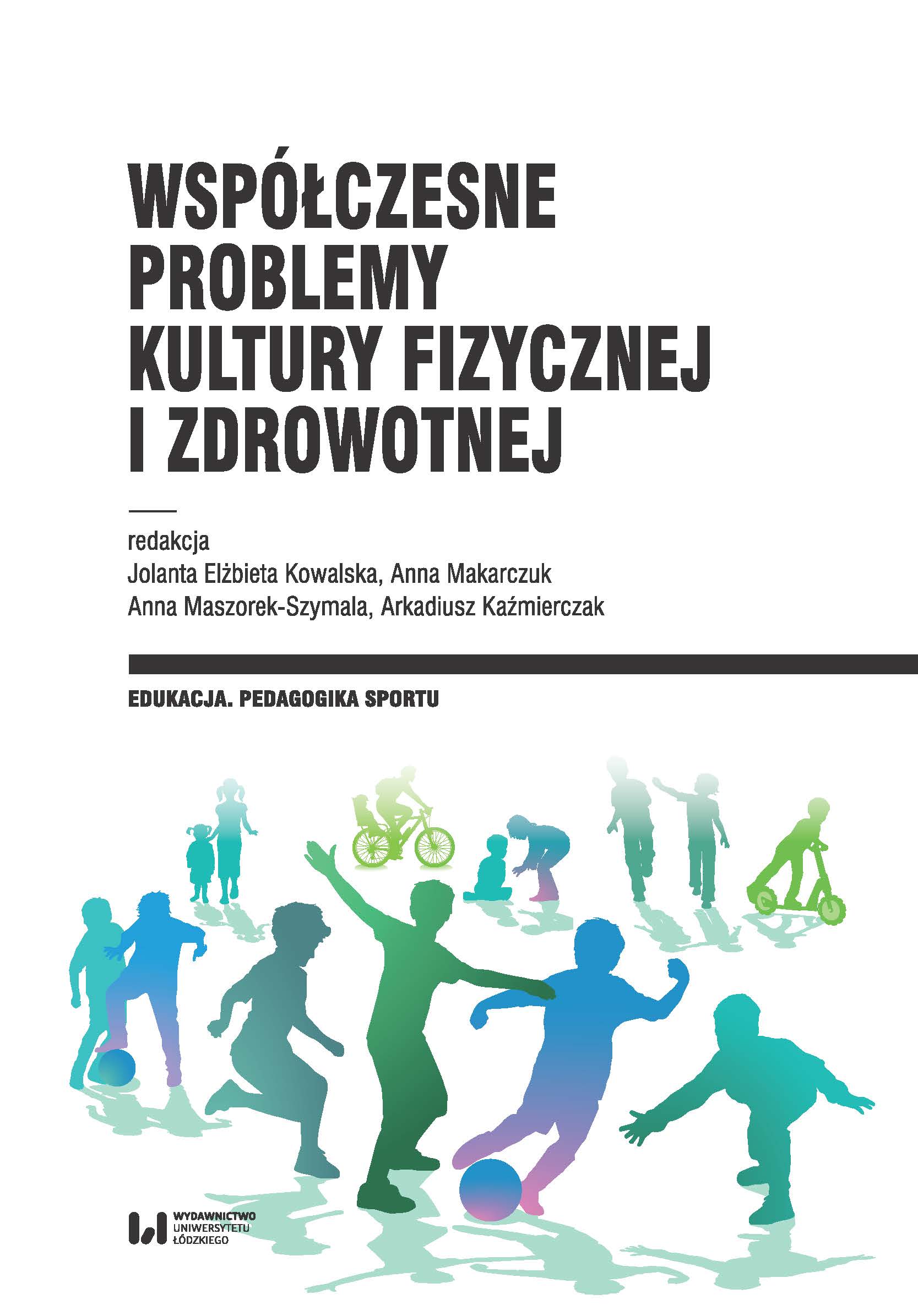
Physical education is a form of youth participation in physical culture and it is a special part of it. Apart from sports and physical recreation, physical education aims to prepare the young generation to participate in physical culture. However, this preparation is understood differently. Originally, movement classes at school were aimed at body gymnastics with the intention of strengthening the health of exercising youth, thus preparing them for an active life. Currently, according to the humanistic concept of physical education, it aims to shape the personality of the pupil, his attitudes and beliefs towards physical culture. This change has significant implications for the effects and quality of physical education. The article discusses the quality of modern physical education in the context of the pedagogical changes made in its goals and, consequently, its content.
More...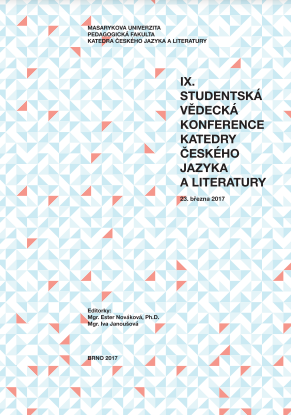
Příspěvek přibližuje tvorbu e-learningových materiálů pro portál Umíme česky.cz, který vzniká na Masarykově univerzitě. Jedná se o online cvičebnici českého pravopisu, která je založená na principech adaptibilního procvičování. Tvůrci projektu nabízejí pestrou škálu úloh, prostřednictvím kterých si uživatelé mohou procvičit pravopisné jevy. Proces procvičování se autoři projektu rozhodli zefektivnit tím, že se uživatelům v případě špatné odpovědi objeví vysvětlení daného pravopisného jevu. Naším cílem se stala tvorba vysvětlení pravopisných jevů, která by byla vytvořená uživatelům portálu na míru. Jaká vysvětlení jsou pro uživatele nejlepší, jsme zjišťovali prostřednictvím dotazníku, který jsme zadali žákům a studentům na základních a středních školách. Podle výsledků dotazníku jsme vytvořili novou sadu vysvětlení, která byla do systému doplněna.
More...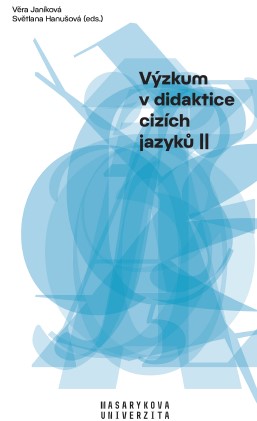
This review aims to map the research connected with the use of ICT tools for the development of speaking skill in foreign language learning. It is based on nine international studies showing in which ways the asynchronous online environment can be used for the development of the speaking skill, emphasising the positive influence of ICT on students’ motivation, and some of them pointing out the importance of feedback.
More...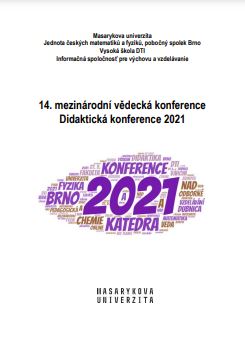
Didactics of mathematics, natural sciences and vocational education represent developing areas and are a breeding ground for new ideas and approaches. In mathematics and physics, the proceedings provide an overview of the historical development of education process and the possibilities of activating students. From a practical point of view, physics and chemistry are interconnected by using simulations in teaching. Vocational education is represented from various perspectives, whether in technical education, by solving logistical problems, or educational activities in the teaching of economic subjects. Due to the current situation, there are abundant contributions on the effects of the ongoing pandemic on the educational process and distance learning.
More...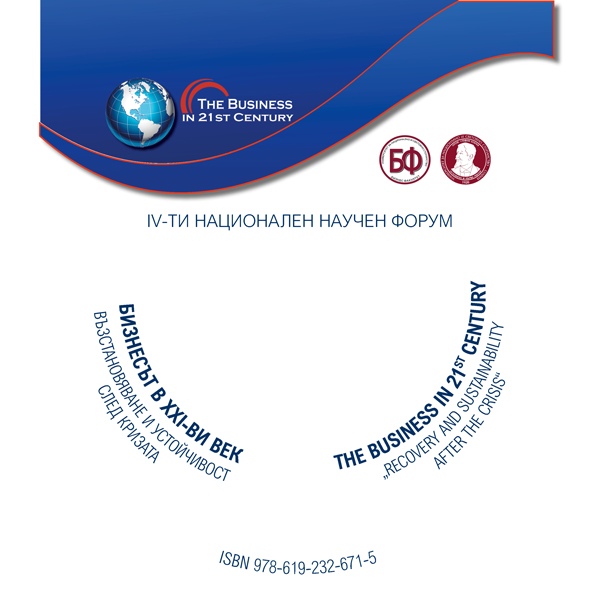
The present report presents the mobile technologies used in the educational process. The importance and increasing role of mobile learning in the educational process in order to attract and retain the attention of the new generation of learners is shown. The upgrade of e-learning through the introduction of mobile technologies and mobile learning is presented. Attention is paid to augmented reality (AR) as a means of modern education and training through the use of mobile technologies. The possibilities and disadvantages of using mobile technologies in the traditional educational process as an informal form of knowledge acquisition have been identified.
More...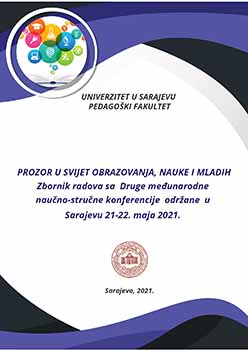
The COVID-19 pandemic has greatly changed the way of life of millions of people around the world, but in addition to numerous bad consequences and limitations in everyday life, it has brought more opportunities to stay at home and more time for reflection and personal upgrading. Great changes have also taken place in education, so in the transition from traditional classroom to online teaching, students are faced with the challenge of being expected to be more independent and responsible for their own learning. This paper aims to examine students' perceptions and attitudes about the possibilities of improving their writing and critical thinking skills by writing comments on the blog based on the professional topics covered in teaching ESP at the university level. The target group are second, third and fourth year students who attend the elective English course at the Faculty of Educational Sciences, University of Sarajevo. This is an action research and the key instrument for data collection is a questionnaire for students planned at the end of the semester. The analytical-descriptive method will be applied for the analysis and the obtained data will be processed quantitatively and qualitatively.
More...
The education system is facing great challenges due to the unexpected epidemiological situation caused by the COVID-19 virus, which has hit the whole world. The aim of this research is to examine and determine the manner of implementation of online teaching of sports activities during the COVID-19 pandemic. 1000 students from the University of Sarajevo participated in the research. The method used is a survey questionnaire. Based on the obtained data, we can conclude that classes in sports activities are mostly realized online. 82.4% of students state that most teachers don’t perform sports activity exercises online, but only send certain theoretical assignments. Although 100% of the respondents believe that sports activities are important for health and that it is necessary to exercise at least 60 minutes a day, 61% believe that sports activities are less important than other subjects. 58.1% believes that the content of exercises from sports activities cannot be successfully realized online. 58.8% of respondents believe that the contents of exercises from sports activities can be realized at home. 77.9% of respondents believe that there are difficulties in implementation of the content of these exercises for those who live in an apartment. The students listed various difficulties they encountered. 45.5% of respondents believe that props for performing these exercises can be made and improvised in various ways. The contents of exercises from sports activities that the respondents believe cannot be realized online at home or in the apartment are martial arts, swimming, some natural forms of movement, athletics, sports games, rhythmic gymnastics, obstacle courses, most elementary games. 60.8% of respondents believe that the best way to implement online classes in sports activities is a live demonstration. It can be concluded that exercises from sports activities can be realized online, but that depends on the creativity of each teacher.
More...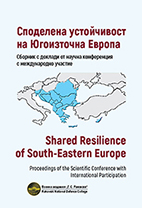
The modern world is characterized by a significant dynamization and complication of ongoing international processes and a historical transformation - a transition from a unipolar to a multipolar world, i.e. the emergence of other key players, having their own interests and resources, and creating conditions for a growing role and influence on world processes. Southeastern Europe is one of the most dynamic regions as an intersection of geostrategic, geopolitical and geoenergy interests. The dynamics of processes in the countries of South-Eastern Europe are characterized by two trends: defocusing of regional development and growing risks of regional instability; turning nationalism into an increasingly real alternative to European integration. The reasons for these trends can be related to external interests/factors, the manifestation of which is expressed in the search and confirmation of spheres of influence - both in relation to the countries as a whole, and through political and social groups within the countries. Shared sustainability has aspects that cover different areas of public life – political, economic and social. The political aspect of the shared resilience of Southeast Europe includes ensuring national security, which is possible by achieving long-term political stability in the SEE region, ensuring human rights, good governance and the rule of law by supporting democracy and collective efforts to fight with organized crime, terrorism and illegal trafficking in people, drugs and radioactive materials, creating a spirit of good neighborliness by expanding cooperation with civil society. The economic aspect combines the need to achieve optimal conditions for the development of the Bulgarian economy by expanding cooperation in terms of support for the functioning of a market economy, construction and modernization of the transport, energy and communication infrastructure and diversification of the energy market. The socio-cultural aspect is expressed in work to strengthen administrative potential and good governance, making efforts to overcome poverty, protect the environment, promote people-to-people contacts, develop cultural, educational and scientific exchanges. The development of the relations of the Republic of Bulgaria with the countries of South-Eastern Europe is of strategic importance not only for Bulgaria and the region. The shared sustainability of South-Eastern Europe should be seen as an important factor in achieving integration in the European continent as a whole.
More...
The prevalence of technology in all aspects of society, education, and work presents new opportunities to overcome challenges associated with vulnerable participants' inclusion. The proliferation of digital technologies in education, encompassing diverse technology-enhanced learning implementations like blended learning, online courses, simulations, virtual classrooms, and mobile learning, necessitates a paradigm shift based on the effective application of inclusive design principles and frameworks towards ensuring the learning environments, teaching materials, and educational services that are universally usable by all students, to the maximum extent possible. Researchers and experts in education and instructional design discuss and experiment with many proactive methodologies and instructional design approaches that prioritize the needs of a heterogeneous user base in digital learning environment development. The current paper presents some results and findings of a study that investigates globally recognized methodologies, principles, and frameworks for the design and development of inclusive digital learning environments carried out within the Erasmus+ project „Inclusive Digital Learning (Dig-2-Inc, 2022-1-FI01-KA220-HED-000090147).
More...
Artificial intelligence (AI) will play an increasingly important role in the educational process. Despite the abstractness of concepts and algorithms in the field of programming, studying them with the support of AI is highly recommended. The organization of learning with the use of AI includes the creation of curricula, structuring the learning content and the creation of a system of learning tasks. The benefits of AI training include developing analytical skills and preparing for future professions. A challenge is the need to adapt education systems to the requirements of a digital society.
More...

This article examines the possibilities of Learning Analytics within the Learning Management System (LMS) Moodle. With the increasing role of online distance education and technology in educational process-es, Learning Analytics is becoming a key tool for enhancing the learning experience. Moodle, as a leading open-source platform, generates a substantial amount of data on learner activities, which can be analyzed to improve educational quality. Learning analytics involves the collection, measurement and evaluation of data regarding learners, with the aim of understanding their outcomes and optimizing the learning process. This allows for informed decisions regarding learning opportunities and teaching methods as well as the identification of students at risk of dropping out. There are four main types of learning data analysis: descriptive, diagnostic, predictive, and prescriptive. Moodle provides built-in learning analytics capabilities through its Moodle Analytics API, which utilizes models based on machine learning and “static” models. The main ad-vantages of Moodle Analytics include predicting learner performance and data-driven decision-making, while some of the challenges are the complexity of setting up and configuring the API, as well as concerns related to data privacy.
More...